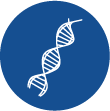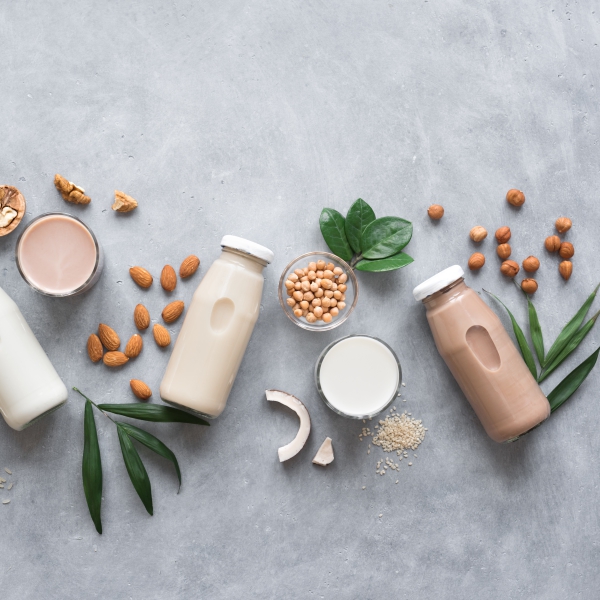Health Benefits and Risks of Coffee
Coffee has become an essential part of most peoples’ daily routine. It is a popular drink that has been consumed extensively around the world. Global statistics shows that a person drinks an average of 42.6 liters of coffee per year. Today, coffee has become one of the highest value drinks in the beverage industry.
According to STATISTA in 2021, coffee market is worth a whopping 4 billion USD worldwide and expected to grow by an average of 8.3% per annum.
Nutrition-wise, black coffee without added ingredients such as sugar or cream is a low energy drink.
Typically, 1 cup of coffee (240 ml or 8 ounces) contains less than 5 kcal, and can also be a source of nutrition such as potassium, phosphorus, magnesium, folic acid, as well as abundant antioxidants. Perhaps the best-known substance in coffee however, is caffeine; which serves to stimulate the brain and central nervous system, making drinkers feel more energetic and prevent fatigue.
The caffeine content and the content of substances in coffee depends on the species variety and processing methods. In equal amounts, espresso coffee contains 64 mg caffeine per 30 ml compared to 24 mg caffeine in 30 ml instant coffee.
Currently, there are numerous studies demonstrating the positive and negative effects on health from drinking coffee.
Advantages – Research suggests many health benefits of coffee such as:
- Reduce the risk of cardiovascular diseases (CVD): Research confirms that drinking black coffee in moderation helps reduce the risk of cardiovascular diseases as well as lower their mortality by 21%.
- Anticancer properties: Coffee is rich in antioxidants. A study shows that drinking coffee can reduce the risk of certain cancers. Drinking 2 cups of coffee a day, for example, helps reduce up to 43% risk of liver cancer and up to 52% risk of breast cancer.
- Reduce the risk of diabetes: Consumption of coffee is linked to reduction of insulin resistance. Drinking 1 cup of coffee per day decreases the risk of diabetes by 6%, and coffee’s antioxidant and anti-inflammatory properties helps reduce the risk of complications from diabetes.
- Helps reduce obesity risk: Coffee lowers the level of ghrelin, a hormone related to hunger, and helps increase fat metabolism. Caffeine improves energy metabolism by 29% in people with normal body weight and 10% in obese people.
- Reduce the risk of brain disease: For example, Alzheimer's and Parkinson's diseases. A study reveals that drinking coffee regularly can help slow down and reduce the risk of brain diseases.
- Increase exercise efficiency: Taking 3-6 mg of caffeine per one kilogram of body weight will boost your exercise performance and endurance.
Disadvantages – On the other hand, consuming coffee can also involve some risks:
- People’s bodies react differently to coffee. The body’s caffeine elimination speed is determined by CYP1A2 and AHR genes. People who metabolize caffeine slowly may suffer side effects from drinking coffee such as anxiety, insomnia, agitation, nausea, headache, tremor or tachycardia (fast heart rate).
- Coffee is unsuitable for pregnant women. A study reports that drinking 2 cups of coffee or more increases risk of miscarriage by up to 8%. The risk increases significantly to 80% with 4-7 cups a day.
- Iced coffees are often high in calories. Although coffee beans contain various substances that helps against obesity and diabetes, drinking coffee loaded with sugar and creamer will worsen your weight problem. According to a report from the Department of Health Thailand, 20 oz (591 mL) of milk coffee contains over 200 kcal and 8-9 teaspoons of sugar. Black coffee is therefore a recommended healthier alternative.
- Affect the quality of sleep. It is known that drinking coffee helps reduce drowsiness and stimulate your brain. However, drinking too much coffee may result in poor sleep or even insomnia, especially in those with slow caffeine metabolism.
- Aggravate psychiatric symptoms. Although caffeine is beneficial in promoting alertness and concentration for most drinkers, patients with panic symptoms or social phobia needs to be wary as excessive caffeine consumption causes symptoms similar to psychiatric disorders such as anxiety, agitationor psychotic syndromes.
Just like any food or beverage, it is recommended to consume coffee appropriately and in moderation according to health guidelines. Coffee can be beneficial when consumed in moderation and harmful when overused. To reap its benefits to reduce the risk of negative health effects, drink up to 2 cups of black coffee a day. Hopefully it is not a challenge for one of the world’s most favorite drinks!
Reference
- Coffee - Worldwide | Statista Market Forecast [Internet]. Statista. 2021 [cited 8 September 2021]. Available from: https://www.statista.com/outlook/cmo/hot-drinks/coffee/worldwide
- Ding M. et al (2014) Long-term coffee consumption and risk of cardiovascular disease: a systematic review and a dose-response meta-analysis of prospective cohort studies. Circ, 129(6):643-59.
- Larsson, S. and Wolk, A., 2007. Coffee Consumption and Risk of Liver Cancer: A Meta-Analysis. Gastroenterology, 132(5), pp.1740-1745.
- Lee, P., Chan, W., Kwok, C., Wu, C., Law, S., Tsang, K., Yu, W., Yeung, Y., Chang, L., Wong, C., Wang, F. and Tse, L., 2019. Associations between Coffee Products and Breast Cancer Risk: a Case-Control study in Hong Kong Chinese Women. Scientific Reports, 9(1).
- Carlström, M. and Larsson, S., 2018. Coffee consumption and reduced risk of developing type 2 diabetes: a systematic review with meta-analysis. Nutrition Reviews, 76(6), pp.395-417.
- Guest, N., VanDusseldorp, T., Nelson, M., Grgic, J., Schoenfeld, B., Jenkins, N., Arent, S., Antonio, J., Stout, J., Trexler, E., Smith-Ryan, A., Goldstein, E., Kalman, D. and Campbell, B., 2021. International society of sports nutrition position stand: caffeine and exercise performance. Journal of the International Society of Sports Nutrition, 18(1).
- Wisborg, K., Kesmodel, U., Bech, B., Hedegaard, M. and Henriksen, B., 2003. Maternal Consumption of Coffee During Pregnancy and Stillbirth and Infant Death in the First Year of Life: Prospective Study. Obstetrical & Gynecological Survey, 58(8), pp.509-510.
- Clark, I. and Landolt, H., 2017. Coffee, caffeine, and sleep: A systematic review of epidemiological studies and randomized controlled trials. Sleep Medicine Reviews, 31, pp.70-78.
- Winston AP, Hardwick E, Jaberi N. Neuropsychiatric effects of caffeine. Advances in Psychiatric Treatment. Cambridge University Press; 2005;11(6):432–9.


.jpg)
.jpg)
